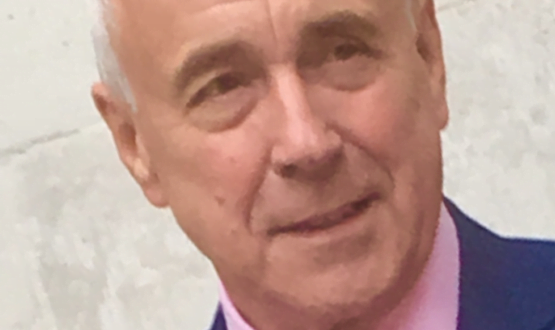Guest blog: Roy Lilley on imagining the NHS’ digital future

The first of our guest Rewired blogs by NHS commentator Roy Lilley reflects on findings from the 2020 Digital Health Intelligence NHS IT Leadership Survey and he asks: what next for UK digital health?
If you drive a car and it’s any colour but black, you have this man to thank. He engineered the first coloured enamels and lacquers for mass production, that didn’t bung-up spray nozzles. If you turned the key in your car and it started… thank him, again.
If you’ve paid for something using your card. Thank him. If you paid cash… he invented the electric cash register.
Poor eyesight in his early years, nearly made him give up. He started teaching and his lectures overflowed, went into industry, cars, aviation and made the first aerial-missile and radio-controlled drones.
In 1933, he made the cover of Time Magazine.
To him is attributed one of the most powerful aphorisms I can think of; ‘High achievement always takes place in the framework of high expectation.’
His name? Charles Kettering.
He told us, don’t join an easy crowd, you won’t grow. Go where the expectations are high and the demands to perform are high.
Kettering was an engineer but he said; ‘I didn’t hang around much with engineers. I lived with the sales-gang… they had some notion of what people wanted.
To be honest, I’d forgotten Kettering until I read this year’s Digital Health Intelligence, NHS IT Leadership Survey.
The exact quote, that brought him to mind is; ‘Our imagination is the only limit to what we can hope to have in the future.’
I admit, I can imagine healthcare made safer, quicker and more accessible by the use of technology.
I can imagine the resources of the NHS underpinned by what a machine has learned about how we spend our money, to assure us of what works and do we want to do it again.
I confess I can see the time when face-to-face consultations will be the exception and video appointments, routine – the survey shows 85% of organisations are already doing this (up from 15% last year)
This report hints that a future just like that, might be possible. It collates numbers from surveys, draws graphs from the conclusions and makes observations. But they are timid.
The upheaval of CV-19 has distorted everything. Not least how we admire the NHS and how so much care has been delivered, to the delight of the public, without an afternoon off-work, a small fortune in parking fees, a wait, in a late-running clinic, hanging on the phone for an appointment. Results can be sent by email, grown-ups can have intimate conversations on the telephone.
We know, expectations are high and yes, there’s a difference between knowing and understanding. The management of patient care, during Covid, by the use of technology, comes through in this report. What comes next doesn’t and it’s in the hands of IT professionals and leaders who have contributed to it Those who will be joining Digital Health Rewired Virtual Care Summit to come together to make sure l to make sure learnings are not lost and that the NHS lives out its imagination and not its history.
My question to them; can they write the next chapter. Can they imagine a new healthcare, the democratisation of data, a revolution-reál.
Is this another report, or a fulcrum point? A stumbling bloc, or a stepping stone.
Expectations are high, you are who you hang-out with, we do have a notion of what people want. If this sounds like a Kettering future, it is and he was right; ‘Imagination is our only limit.’
Get your ticket for Digital Health Rewired 2021 to join the must-attend virtual festival celebrating the best of digital health and care, taking place across 15-19 March 2021.



